 Phrases like ‘We might not could come’ and ‘Gas is expensive anymore’ might be hard to understand, but they are proof that the way Americans speak is as diverse as the country itself.
Phrases like ‘We might not could come’ and ‘Gas is expensive anymore’ might be hard to understand, but they are proof that the way Americans speak is as diverse as the country itself.
Researchers at Yale University have been studying the varieties of English spoken in the U.S., documenting the subtle differences in how phrases and sentences are put together. Many of the sentence constructions they found are enough to give grammar nerds heart palpitations, but that’s not the case with the linguists involved in the project.
“Language is an amazing process whether it’s considered by [some] in society to be acceptable or not acceptable,” said Jim Wood of Yale University, who had a leading role in the project. “We’re not here to tell anybody what they should say and what they shouldn’t say. We’re interested in what people actually do with language.”
What people do with language varies from region to region. In California and New York, the dramatic use of the word ‘so’ — as in ‘I am so over you’ — is common while the use of double negatives — ‘Ain’t nothing you can do for them’ — is found in a number of states, including South Carolina, Alabama and Florida.
Click on a location in the interactive map above to see common phrases for each state
Linguists don’t know how all of these sentence constructions originated, but some can be traced back to long-ago immigrants. The phrase ‘needs washed’ goes back to Scottish and Irish immigrants who settled in the Midwest more than a century ago and is still used in Scotland and Ireland today. Researchers have also traced the origins of the construction ‘come with’.
“‘Do you want to come with?’ seems to have originated in areas that have a lot of speakers of west Germanic languages such as German,” said Wood, “and German has constructions like that.”
Wood adds that the data is complicated and that just because the map shows a construction exists in one place, that doesn’t mean it’s unique to that place.
Aided by a grant from the National Science Foundation, the Yale team conducted nationwide surveys to see which sentence constructions people accepted and which they rejected. In the maps below, yellow suns represent people who accept certain sentences while, the black suns show those that reject them. For example, the acceptance of ‘Here’s you a piece of pizza’, comes down along geographical lines; many yellow suns in the South, few in the North.


Wood would like to see more acceptance and celebration when it comes to linguistic differences.
“Language is sort of the last socially acceptable form of discrimination,” he said. “You wouldn’t be able to say ‘I didn’t hire someone because of their race’, but…you can say ‘I didn’t want to hire this person because they didn’t sound professional when they spoke’ and that can sort of be a code for ‘they spoke a dialect that reveals their background’.”

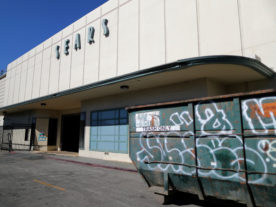
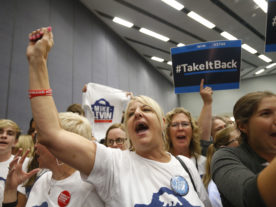


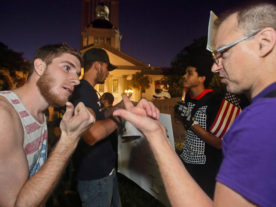


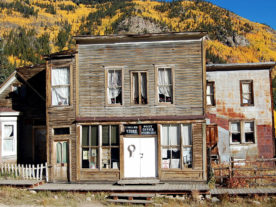


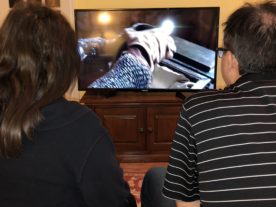
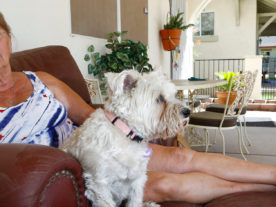




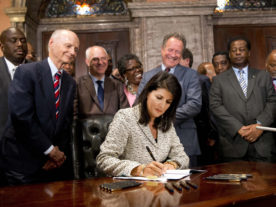

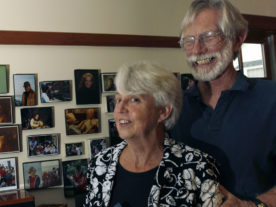


Being a native-born American and having traveled to most of the US states, I’ve never heard most of the examples given in this article, so they must be relatively rare. Most of the bad English usage I’ve heard comes from Ebonics, such as “Did you ‘axe’ him where he was?” And it seems that public school teachers make no attempt to correct these mistakes. The other large contribution to bad English seems to come from eastern “hillbilly” culture that uses double negatives as stated in this article. These problems could be largely corrected if grammar school teachers were strictly required to speak correct English in the classroom, because they seem to be heavily involved in spreading grammatical and pronunciation errors. Also, many TV news announcers perpetuate errors such as “The ship ‘sunk’ off the Atlantic coast”. President George “Dubya” Bush was infamous for his abuse of the words “nuclear” as “nucular” and “arctic” as “artic”. News announcers also frequently misuse the language by stating “The committee is currently ‘honing in’ on a solution to the problem.” or “The students ‘could care less’ about littering the sidewalk” instead of “The students ‘couldn’t care less’ about littering the sidewalk”.
Very infomative article. I was tempted to use bad English in my reply. Which anyways would be so bad awful terrible. But I won’t. My mother was a teacher an insisted we speak correct English. She was not lazy. You criticize two particular areas: 1. Nonstandard construction. 2. Mispronunciation.
The first can interfere with comprehension. This can be a big problem especially when it lead to mis-conmprehension. The second, usually does not. A little toleration is all that is needed. Your particular example of “axe” is often used by some who are perfectly literate and speak standard English. It, perhaps, is more likely a very wide spread speech impediment. The experts in speech could address this issue better than I have just done.